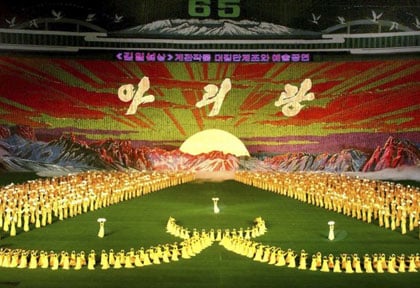Walt Disney Corporation is one of the most influential and powerful media conglomerate in the entire globe and together with Time Warner, Comcast , National Amusement, News Corp and Sony they have become the top six media companies (also known as the “Big 6”) that dominate the entire entertainment industry [1]. 
In 2005, Bob Iger became the new CEO of the company and since then his main objective has been that of expanding even more the power and influence of the company, by purchasing the ownership of Lucasfilm and Marvel.
The company’s monopoly over the entertainment industry can be explained by the possession of a large number of TV Networks, Cable Channels such as Disney Channel, Abc Family, Soapnet, also Local Tv Stations, International TV Broadcasts, over 69 local radios, Music companies such as Buena Vista Music Group, and also the ownership of magazine groups , books publishers, theatrical productions, retail and Theme Parks and Resorts such as the many Disneylands spread around the world.

Therefore, its presence is undoubtedly everywhere, in every aspect of our lives, from what we read to what we watch on the Television or to what we buy [2].
However, its influence is not merely limited to the US but contrarily it has spread and achieved phenomenal popularity in other many parts of the world.
One of its most beneficial and powerful relations is with China, which represents for the US a highly profitable overseas market.
The origins of their relations date back to the 1930s, during World War Two, when two major Disney films such as Snow White and Seven Dwarfs, together with Pinocchio were released in Hong Kong and Shanghai exerting a strong positive influence especially on Chinese filmmakers.
However, in 1949 following the establishment of the People’s Republic of China ,the company’s involvement in the country was banned, forcing Disney to withdraw its position from the Chinese market, which marked the beginning of the Cold War period[3].
Only in 1986, the company was given permission to re-enter the market again, with a regular television broadcast, showing short comics that were strictly controlled and supervised by the China Central Television (CCTV)[4].
It was by this time, that cartoon figures such as Mickey Mouse and Donald Duck appeared on the Chinese national TV for the first time, reaching a massive popularity among the public and becoming one of the most watched Tv programmes by Chinese families[5].


Since this moment onwards, the relationship has grown exponentially in terms of influence and meaning for the Chinese population.
As Wing Chao, a former Disney executive, stated “Disney has worked to build a strong affinity with Chinese families and audiences through the core values of quality, optimism, innovation, and storytelling in all of its creative content”[6].
Therefore, Disney’s role of merely having control over certain TV programmes has evolved significantly over the years, reaching a high level of influence from films to Disney toys and also introducing to the country the well known Disney Resorts[7].
In fact, one of the latest big achievements of the company in China has been the outstanding and gigantic $5.5 billion Shanghai Disney Resort which opened to the public in June 2016.
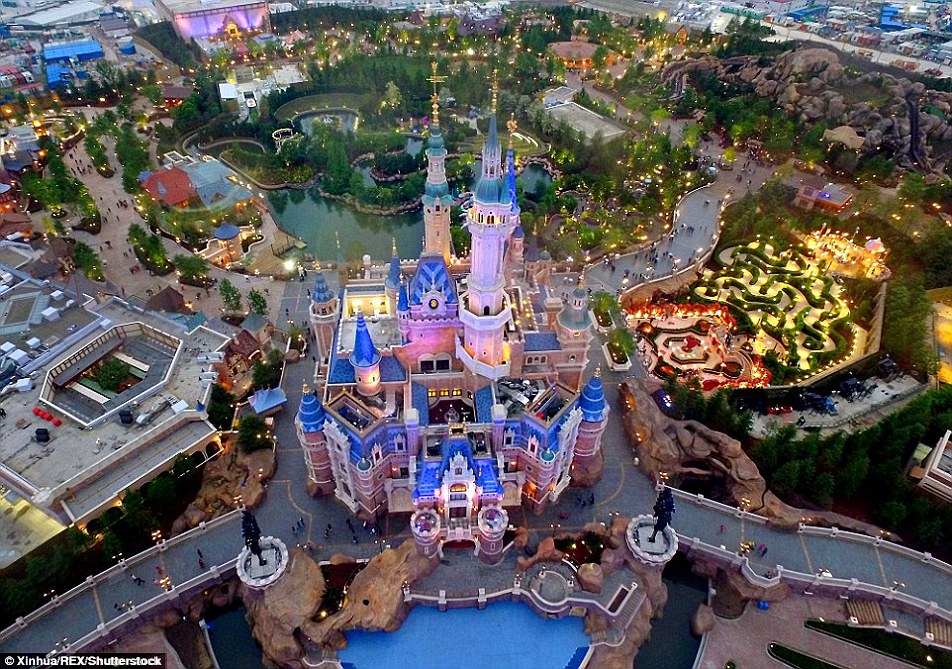
The opening of the Resort, if all goes as planned, will have an incredibly positive impact on the company’s success and influence in China, as the Shanghai Resort will generate a profitable environment for consumerism in China ranging from Disney books, clothes, toys, movies to all sorts of affiliated merchandise.
CEO Iger, has defined the Shanghai Park as the “greatest opportunity the company has had since Walt Disney himself bought land in Central Florida”[8].
But besides its economic value and US influence in China, many politicians have seen this moment as an opportunity to increase diplomatic relations and as Barack Obama stated in his letter which was read out at the ceremony, the Resort also “captures the promise of the US-Chinese bilateral relationship”[9].
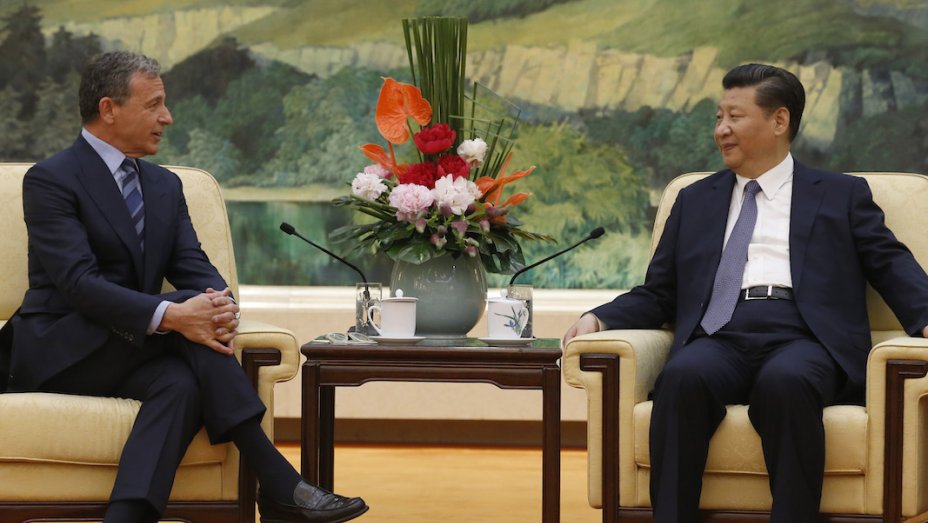
Meaning that the relationship between China and The Walt Disney Corporation does not represent solely a trade relation based on economical interests but also a diplomatic one, because promoting cultural bonds and openness will inevitably lead to strengthen the diplomatic relations and cooperation between the two historically and culturally different countries such as China and US[10].
REFERENCES:
[1]WebpageFX. (2017). The 6 Companies That Own (almost) All Media [Infographic] | WebpageFX. [online] Available at: https://www.webpagefx.com/data/the-6-companies-that-own-almost-all-media/ [Accessed 28 Nov. 2017].
[2]Subsol.c3.hu. (2017). Free Press, Media Monopoly Made Simple. [online] Available at: http://subsol.c3.hu/subsol_2/contributors3/freepresstext.html [Accessed 28 Nov. 2017].
[3]Yu, H., (2015). From Kundun to Mulan: A Political Economic Case Study of Disney and China. ASIANetwork Exchange: A Journal for Asian Studies in the Liberal Arts. 22(1), pp.12–22. DOI: http://doi.org/10.16995/ane.100
[4]Fung, A. (2013). Asian popular culture. 1st ed. New York: Routledge, p.59.
[5]Yu, H., (2015). From Kundun to Mulan: A Political Economic Case Study of Disney and China. ASIANetwork Exchange: A Journal for Asian Studies in the Liberal Arts. 22(1), pp.12–22. DOI: http://doi.org/10.16995/ane.100
[6]Poblete, J. (2016). China’s relationship with The Walt Disney Company is a diplomatic one just as much it is a business one. [online] DisneyExaminer. Available at: http://disneyexaminer.com/2016/04/26/china-relationship-with-the-walt-disney-company-is-a-diplomatic-one-just-as-much-it-is-a-business-one-c-100-los-angeles-conference-recap/ [Accessed 28 Nov. 2017].
[7]Ibid.
[8]Barnes, D. (2016). How China Won the Keys to Disney’s Magic Kingdom. [online] Nytimes.com. Available at: https://www.nytimes.com/2016/06/15/business/international/china-disney.html [Accessed 28 Nov. 2017].
[9]Clover, C. (2016). When Walt went to China. [online] Financial Times. Available at: https://www.ft.com/content/f87b5de6-3895-11e6-9a05-82a9b15a8ee7 [Accessed 28 Nov. 2017].
[10]Poblete, J. (2016). China’s relationship with The Walt Disney Company is a diplomatic one just as much it is a business one. [online] DisneyExaminer. Available at: http://disneyexaminer.com/2016/04/26/china-relationship-with-the-walt-disney-company-is-a-diplomatic-one-just-as-much-it-is-a-business-one-c-100-los-angeles-conference-recap/ [Accessed 28 Nov. 2017].

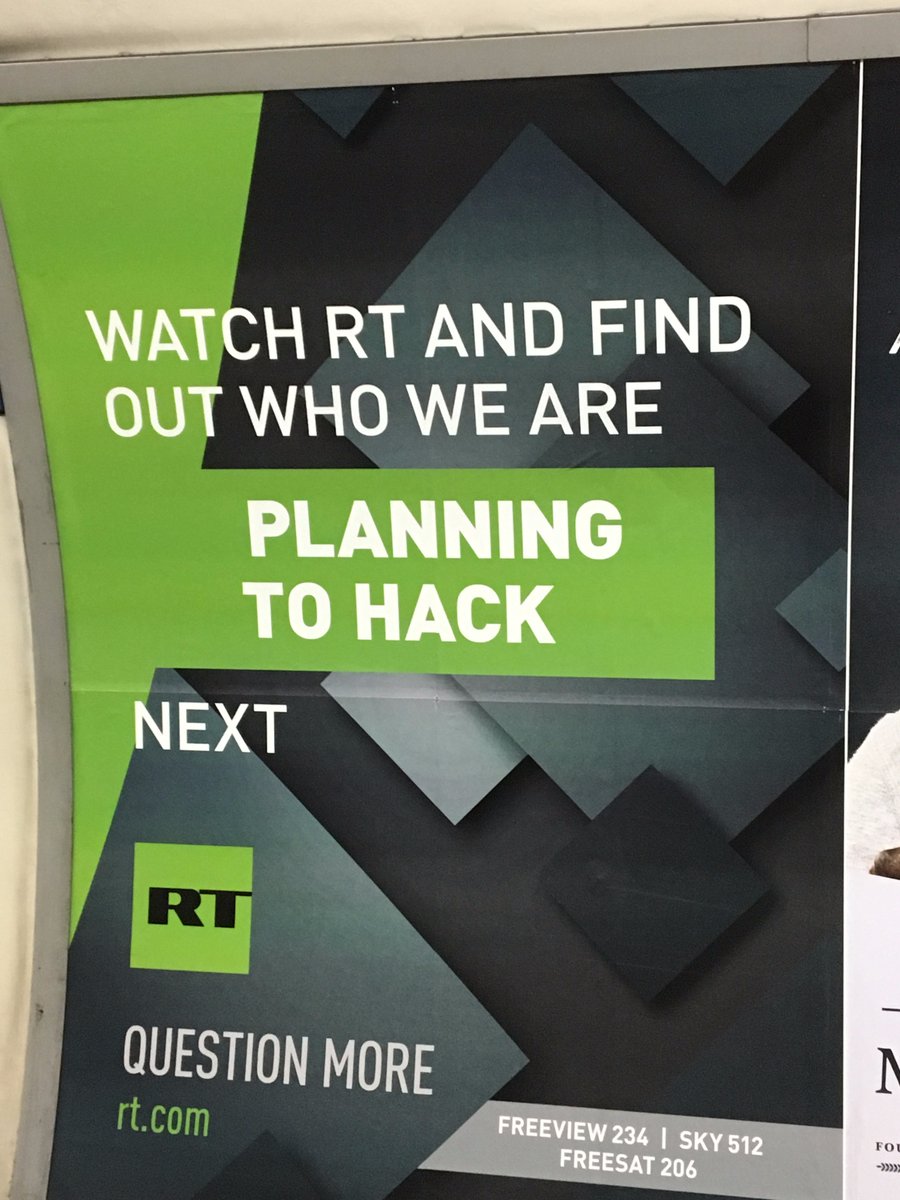 .
.
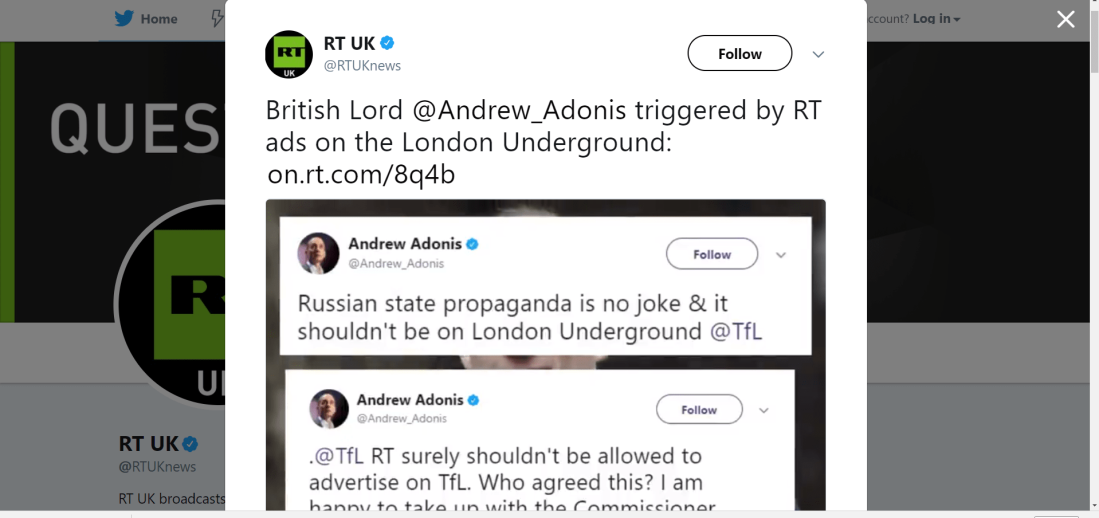


 The wide range of services offered by the App includes:
The wide range of services offered by the App includes:



